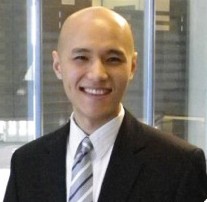Introduction
During last summer, I attended the 2016 Annual Meeting of the Statistical Society of Canada (SSC). I spoke on the career-advice panel at the 2016 Canadian Statistics Student Conference (CSSC), and I met some colleagues and professors to share ideas about our mutual interests in statistics, statistical education, and the use of social media to promote statistics to the general public.
From observing and talking to many students at this conference, I realized that most of them did not use it effectively to maximize their learning potential. A conference like this is a great opportunity for networking, career development, and – eventually – finding a job, but I suspect that most statistics students do not comprehend the depth of its value, let alone how to extract it. Thus, I’m writing this advice column to help anyone who attends a professional conference.

Image courtesy of Rufino from Wikimedia Commons.
Objectives
Most statistics students want to succeed academically and find a job after completing their education – that job could be within or outside of academia. Thus, at any professional conference, they should have the following objectives:
- To learn new ideas in your fields of interest
- To meet others who share your professional interests
- To learn soft skills from veterans in your industry for developing your career
- To build valuable relationships in your professional network
Unfortunately, based on my anecdotal observations, many students in statistics, math and science don’t seem to grasp Objectives #3-4. These students tend to be passive in their attendance and shy in their participation. When they do try to pursue Objectives #3-4, they are often unprepared and do not take advantage of all of the learning opportunities that are available to them.
The first step in maximizing your learning potential at a professional conference is recognizing that it takes preparation and hard work. To do it well, you need to take all 4 objectives seriously and practice them frequently. Attending a professional conference is a skill, and developing this skill requires thought and effort. It involves much more than just showing up, talking at your turn, and listening at all other times.
Hopefully, the rest of this article will help you to develop this skill in an intelligent way, but you must realize that there is no substitution for hard work.
Read more of this post










Recent Comments